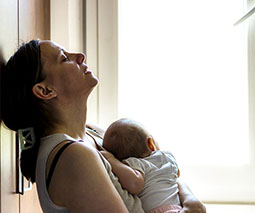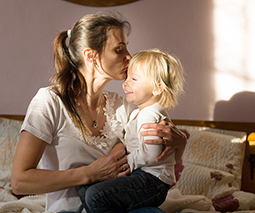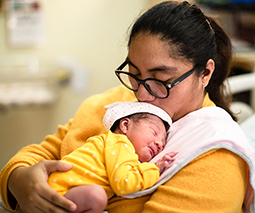What is a postpartum doula and how can they help new mums?
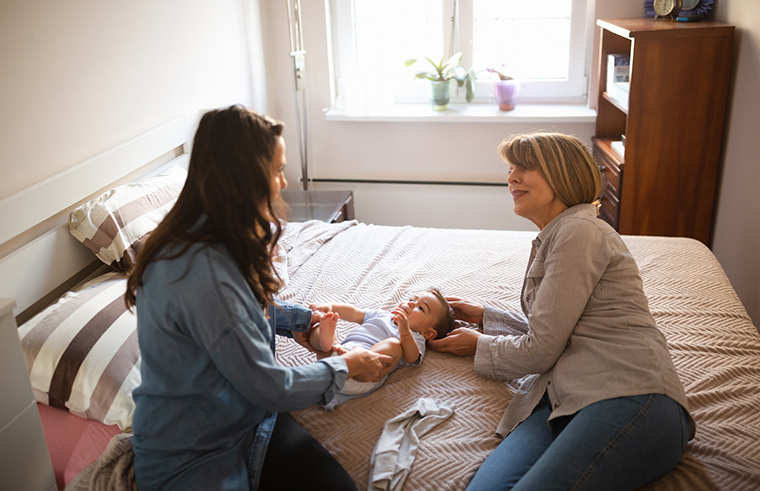
When the Duchess of Sussex announced her plans to include a doula in the birth of her first baby she rubber-stamped the practice for mainstream use. But while birth doulas are very much de rigour, postpartum doulas are still fairly mysterious.
The support differs from mum to mum
So what is a postpartum doula? In a nutshell, they offer new mums a support service in the early days (or should that be daze?) of motherhood.
Naomi Chrisoulakis is a postpartum doula practicing in Sydney. She tells me that there isn’t a set job description for the role. “The support I offer looks different from mum to mum,” she says.
This means that there is no such thing as a typical day for a postpartum doula. From client to client, Naomi might be holding the baby while the mum takes a long hot shower, or entertaining older children while she has a nap, putting laundry on or changing the sheets on the bed.

On top of practical support, postpartum doulas play a huge role in a new mother’s emotional wellbeing. “What it all boils down to is making the mother feel comforted, supported and at peace,” says Naomi.
Postpartum doulas are not medical professionals. However, they can offer new mums a range of support with breastfeeding, sleep and alleviating concerns. “I’m not one of those so-called experts who give you a set of rules – I help mothers find their confidence and tap into their intuition and while I offer suggestions, it’s always about what feels right for that woman and her baby.
“We can feel really lonely”
Although postpartum doulas seem like a new trend, the practice is actually fairly old.
“Doula is a Greek word that means ‘woman who serves’, Naomi explains. “Traditionally she would be a woman in the village who would support a new mother with cooking and looking after older children. She would be a person with some knowledge about breastfeeding and child rearing.”
These days we are living in a more isolated way. While the phrase ‘it takes a village’ is often batted around, most of us live fairly insular lives. This means that when we go through big, life-changing events, like having a baby, we can feel really lonely.
“I was trying to be the perfect mother”
This is something that Naomi experienced first hand. With a midwife for a mum, she thought that motherhood would be a breeze, but the reality of a difficult birth and an unsettled colicky baby was a huge shock to the system.
“I felt completely out of my depth, I got postpartum anxiety. I found it really hard. I thought that it would be all soft hazy days snuggled up in bed with my newborn. But instead, I found myself having panic attacks and calling the PANDA helpline in tears.”
Although she had some support from her family, Naomi fell into a common trap. “I was trying to be the perfect mother,” she recalls.
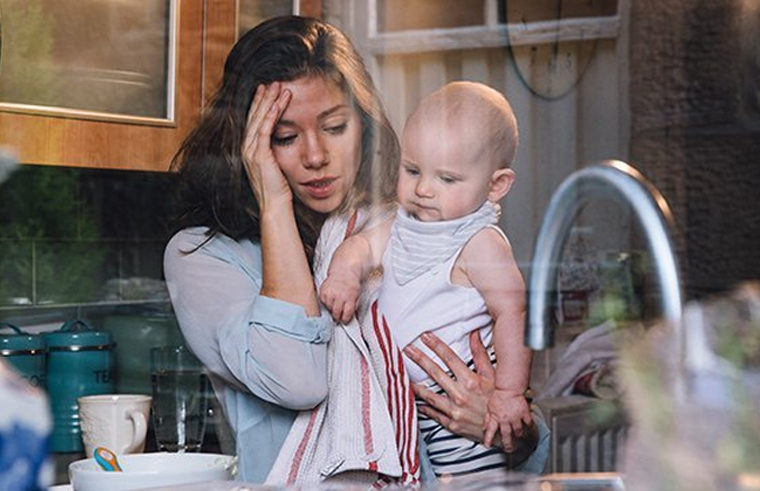
Looking back, Naomi can see how it happened. “We’re told that we can have it all, so we think that we should be competent, we should be fine. There is so much pressure to get motherhood right.”
With her personal experience in mind, Naomi realised that there was a gap in the way that we care for new mums. While there is a massive focus on the antenatal phase and preparing for birth, the postpartum phase is a time when many women lack meaningful support. And that’s where postpartum doulas come in.
Postpartum support is so important
Naomi believes that the service postpartum doulas provide could make an enormous difference to new mothers.
“Research shows that having good postpartum support in the early days, whether that’s via family and friends or paid support, is a bit of insurance against mood disorders such as postpartum depression and anxiety,” she says. “We live in a country where one in six women have postpartum anxiety and depression. Clearly, something is going wrong in the way that we support new mums.
“It’s okay to say that it’s hard,” she adds. “And it’s okay to ask for help.”
Can’t afford a postpartum doula? Try Naomi’s self-care tips:
- Fill up your freezer in the weeks before baby is due
- Ask friends for meals instead of gifts
- Organise an in-home massage and ask a friend to come and hold your baby while you’re having it
- Add magnesium salt and calendula flowers to your bath for their calming and healing properties
- Use black sesame oil for self-massage
 Need some support in those tough early days? Our Parent School parent coaching experts can help. Click to find out more or book a one-on-one session.
Need some support in those tough early days? Our Parent School parent coaching experts can help. Click to find out more or book a one-on-one session.

